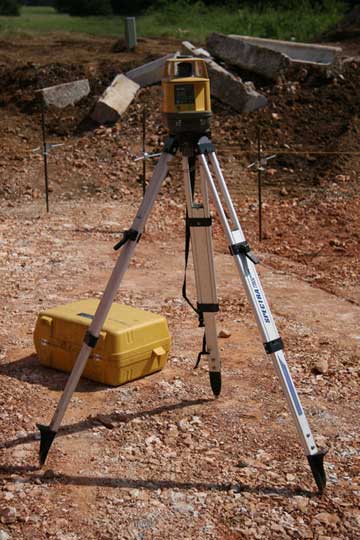 by Preston MacDougall March 22, 2008
Unless you're watching The Daily Show with Jon Stewart, you don't normally associate state legislatures with playgrounds. But there's a gigantic water-fight going on right now between the States of Georgia and Tennessee. Instead of throwing water balloons, legislators are lobbing resolutions concerning the relative locations of the Tennessee River and the Georgia-Tennessee borderline.
You can see what all the political splashing is about by taking a quick trip in cyberspace. If you go to mapquest.com, enter TN for the state, then click search for maps, you'll see why Tennesseans try to be good neighbors - we have eight of them. If you drag Chattanooga so that it is just to the right of the center of your computer screen, and zoom-in until you can see street names, you'll see that the borderline separating Tennessee from both Alabama and Georgia is as straight as a geodesic arrow. It was planned that way. The problem is, it isn't where it's supposed to be. After South Carolina ceded territorial claims in 1787, the 35th parallel (north) was decreed to be the borderline between Georgia and North Carolina. In 1796, it also became the border between Georgia and the new state of Tennessee, which was an integration of North Carolina's western territories. National and state boundaries are like lines of latitude and longitude in that they didn't exist until politicians and geographers decided they had practical value and invented them. The difference is that drawing lines of latitude and longitude is an act of geometry, whereas drawing boundaries often constitutes an act of war. In a sense, mathematics can still have a role, since war can be avoided if the diplomats involved are skilled geometers, and can bloodlessly "triangulate" the interests of all parties. Hopefully, the border-questioning resolution introduced by Georgia State Senator David Schafer won't lead to any Southern hostilities off the football field, but why risk it? This is where the Tennessee River flows into the picture, since, as you can see on your Mapquest screen, it doesn't flow into Georgia. It comes darn close though. You could also say that it comes dammed close, since the dam that created Nickajack Lake was just high enough for the high-water mark to lie within a stone's throw of Georgia. Again math had a couple of roles to play in this plentiful supply of freshwater being tantalizingly close to a state that is in the middle of a historic drought and forced to impose strict water restrictions. Most recently, in the 1960s, engineers with the Tennessee Valley Authority seem to have accurately surveyed the surrounding topography, and calculated how high the dam could be without flooding even a single acre of Georgia. Parched Georgians are now wishing that 19th century surveyors had been as mathematically adept as the 20th century TVA engineers. That's because, while the 35th parallel seems to be just shy of the original shoreline of the Tennessee River, it skips right across the fat part of Nickajack Lake. A team of surveyors, back in 1818, set in stone the now disputed borderline about one mile south of the 35th parallel. Various excuses have become legendary, from a faulty compass to fear of local Native Americans. Perhaps the dog ate their slide rule. But the one that holds the most water is simple mathematical error, somewhere between decrees on paper and degrees on the ground. There is no vaccine against making errors in mathematics, nor is there one for chemical errors. For instance, sugar is a high-energy molecule, and sugar dust is explosive no matter how sweet and harmless it seems. The key to lowering the impact of technological misfortune is raising the standards in mathematics and science education.
On the Web:
E-mail your letters & opinions to editor@sitnews.us SitNews ©2007 Stories In The News Ketchikan, Alaska |
||
